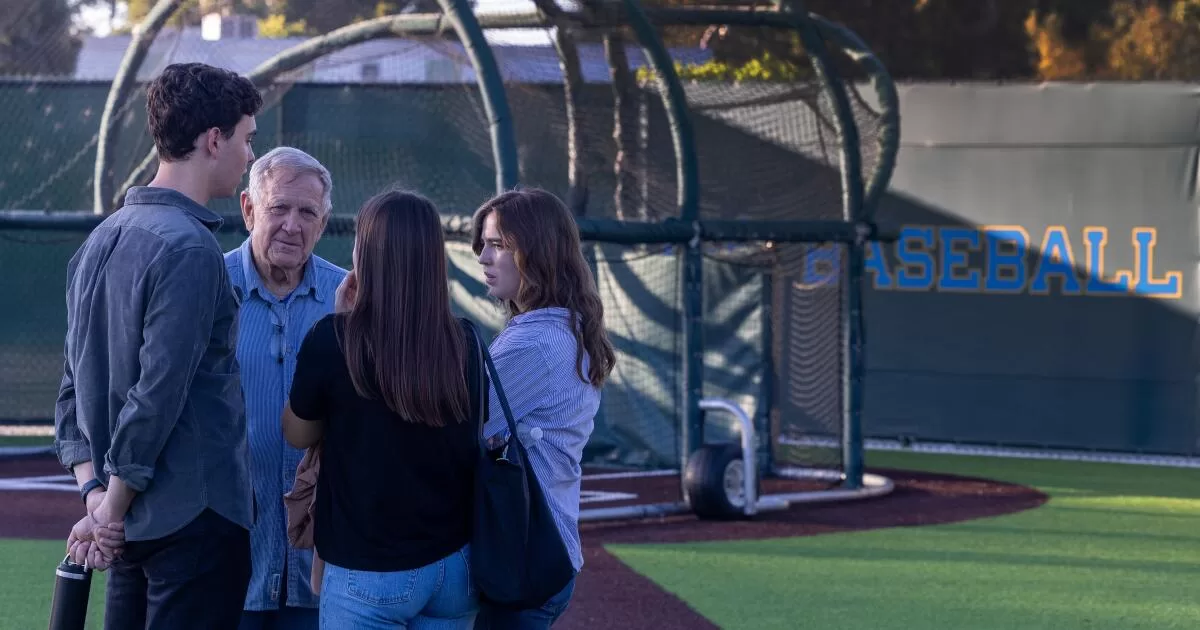The UCLA baseball program will be locked out of its stadium on veterans’ land west of the campus starting at noon today under an order issued by a federal judge late Wednesday.
At the end of a nearly 11-hour hearing, U.S. Federal Judge David O. Carter read a brief ruling enjoining UCLA from accessing the Jackie Robinson Stadium and an adjacent practice field until it produces a plan that meets his satisfaction to ensure that service to veterans is the predominant focus of 10-acre facility leased from the U.S. Department of Veterans Affairs.
Carter imposed the order shortly after interim UCLA Chancellor Darnell Hunt made a late appearance in the downtown court in response to the judge’s warnings that he would cordon off the facilities if the chancellor did not show up.
Hunt, who arrived shortly before 7 p.m., stood by silently as the attorney representing the university pleaded with Carter to accept a proposal that was focused on increasing services to veterans.
“It’s more than a lease,” attorney Ray Cardozo said. “It’s a partnership. It’s a good trade-off from our perspective.”
Unpersuaded, Carter read the four-paragraph order in which he thanked Hunt for appearing but declared the proposal inadequate.
“The VA is ordered by noon tomorrow to cordon off and prevent any use of the UCLA baseball stadium and practice field until further notice from the court,” he said.
In a ruling following a four-week trial that ended earlier this month, Carter declared the UCLA lease illegal because its focus was not predominantly service to veterans. Under a slightly different legal standard, he also invalidated leases to the Brentwood School, an oil drilling operation and two parking lots, all illegal because they did not principally serve veterans and their families.
The class-action lawsuit alleged the VA had failed in its duty to provide adequate housing for disabled veterans and that its leases of portions of the 388-acre campus in West Los Angeles violated the the 1888 deed of the land to the U.S. government for the “establishment, construction and permanent maintenance” of a home for disabled soldiers.
Carter ordered the VA to produce 750 units of temporary housing and 1,800 units of permanent housing on the campus in addition to the 1,200 to 1,600 planned or under construction pursuant to an earlier lawsuit.
He called the hearing Wednesday to decide an exit strategy for the leaseholders and to select which parcels would be used for housing.
Early in the hearing, Carter said he had hoped the parties would have worked out proposals that he would merely have to sign off on. Instead, the day became an extended back-and-forth in which lawyers for the government, the veterans and the leaseholders broke into numerous huddles in the courthouse to negotiate.
Carter repeatedly shot down their proposals.
Attorney Louis “Skip” Miller, representing the Brentwood School, proposed giving back about five acres of its 22-acre lease for housing. That would include three of six tennis courts, a parking lot and a softball field. It would also widen the hours when veterans could use the facilities.
Carter rejected it, saying he was not going to accept a trade-off of five acres for 17, causing Miller to apologize if he had created the impression that the land was the schools to give back.
Carter repeatedly tried to guide the negotiations with dire warnings of what he could do, then pulling back with more accommodating ideas of what he wanted to do.
“If you don’t come up with something positive, that 22 acres is null and void,” he told Miller.
Several times he said he would bulldoze or put sand in Brentwood School’s 10-acre swimming pool if he was “put into a box,” but then said he thought the veterans would be very accommodating in allowing Brentwood students to use their facilities.
“Maybe we work this out so the school could have it half a day,” he said.
“I don’t want this to be like Vietnam where you had to destroy it save it,” the Vietnam veteran said. “I don’t want to put sand in the swimming pool.”
“We’ve got to attract people. That’s why I want that swimming pool, that track. Otherwise it’s going to get bulldozed.”
Later in the day, attorney Roman Silberfeld, representing the veterans, said an agreement in principle had been reached that would raise the school’s cash payment to the VA to a market rate and a mechanism would be created for the VA to capture any of the land as needed for housing.
Carter allowed the parties more time to nail down the details.
The only matter definitively settled Wednesday was the fate of Bridgeland Resources LLC oil drilling operation on the east side of the campus. Carter rejected the proposal by Bridgeland attorney Ernest Guadiana to swap an acre and a half of its property and increase royalties from 2.5% to up to 5.5% based on the price of oil.
Setting down a principle that he interpreted as “principally serving veterans,” Carter demanded that Bridgeland offer 51% of its gross revenue from the wells.
“Do I hear 51%,” he repeatedly asked Guadiana, who said that figure would put the operation out of business.
Acknowledging that he has no jurisdiction over several older wells that draw from under the campus, Carter ordered Bridgeland to cap the more productive well that draws from under West Los Angeles.
